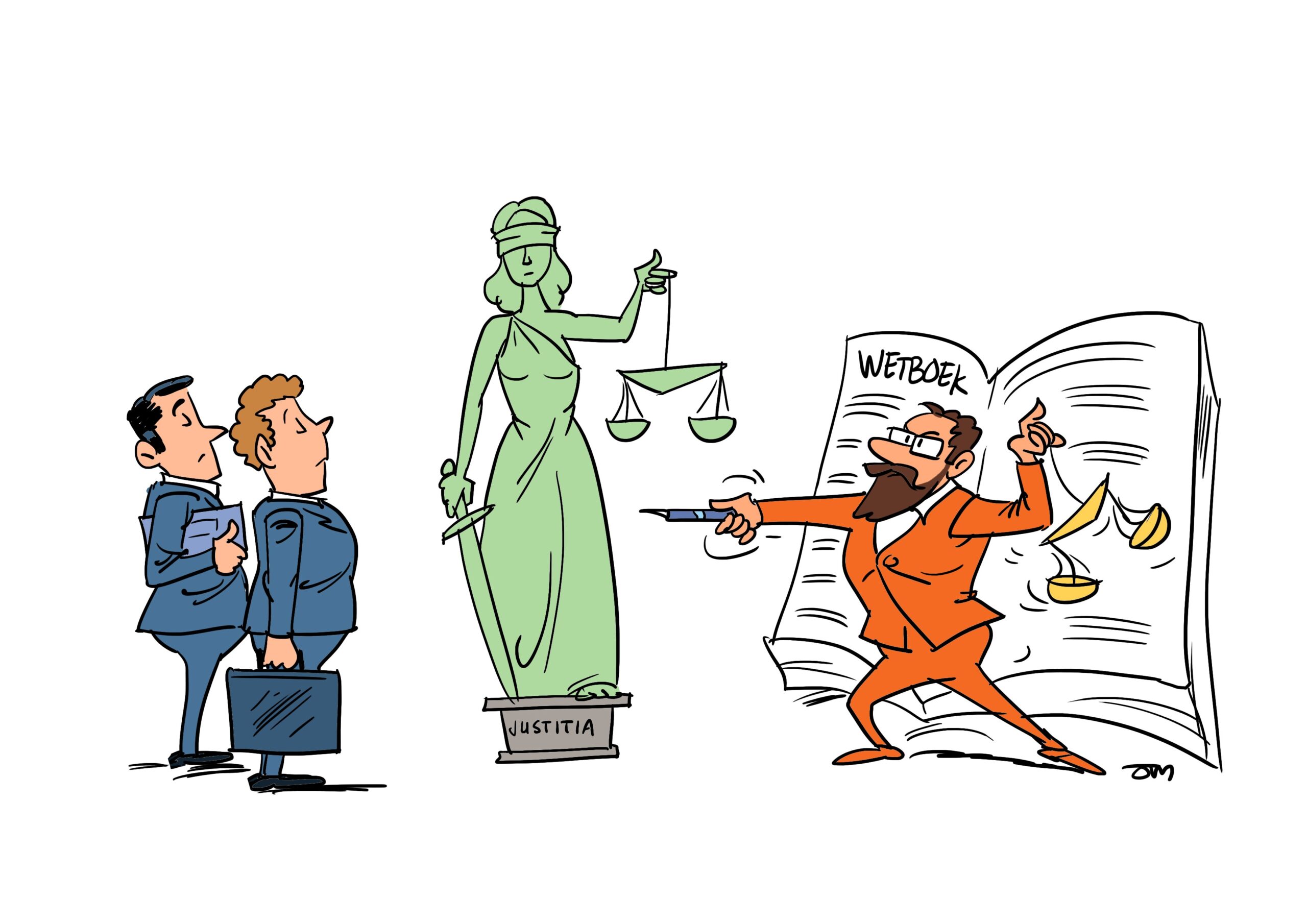“If it walks like a duck, quacks like a duck, looks like a duck, it must be a duck”
This is basically what employment is. A company pays a person to perform a certain job under instructions during a pre agreed time period.
Freelancing
We often encounter the situation that employment is solved by entering into a freelance contract with the person that actually should have been the employee. The company is glad not to be an employer as they prefer not to be involved in obligations that come with being an employer. The employee is glad he pays much less tax and social premiums.
Freelancing instead of employment
What the freelance contractor that should have been the employee does not often understand is that less social premiums are due as this person is no longer insured for unemployment, but more importantly for disability. Taking out a private disability insurance, which we recommend everybody who is not covered for disability already, is rather expensive. Especially if you have had trouble with your health in the past, the insurance premium will go up rapidly.
The employer should understand the risk taken, hiring a freelance contractor that should have been an employee. The Dutch tax office collecting the wage tax will not be too bothered. Whether the company pays wage tax or the freelancer pays income tax results in more or less the same amount of tax paid, especially when entrepreneurs discounts are being denied, due to the fact that the tax office disagrees the freelancer to be a freelancer.
The other department of the tax office, that collects the social premiums, is less mellow in this matter, as social premiums are only due under employment, not under entrepreneurship. This department will challenge the freelancer ship. If it turns out that this relation is indeed an employment, the employer will be held liable for wage tax and social premiums over the net amounts paid to the employee. The net amounts are the invoices including VAT the freelancer issued to this company. The net amount is not only grossed up, but on top of that comes a 25-50% penalty. This correction is for a maximum period of five years. If you do the math, you can imagine the risk taken.
The freelancer who turned out to be an employee will have a VAT issue. The freelancer charged VAT on the invoice, this cannot be retrieved from the tax office, as it was stated on the invoice. But the VAT the freelancer claimed as pre paid VAT, being VAT on costs like telephone costs administrative costs etc, needs to be paid back to the tax office as this person turned out not to be a entrepreneur for value added tax.
BV company
The above also applies if the freelance activities are brought into a BV company. When the director of this BV company performs a job that can be regarded as an employment, the situation and the response from the tax office will be not much different. The director of the BV company does also not pay unemployment and disability social premiums.
Only when the BV company has more genuine clients, then the above threat does not exist, but then there is also not an employment situation.
Stand alone expertise
It is possible to hire a person not being an employee for a job that needs to be done without that being regarded an employment.
This is either an assignment where something is being build, like a boat, and only when the assignment is approved by the client, then the risk of the creation goes to the client and the entrepreneur is getting paid. This is not an employment. The requirement is a physical object.
Another example is a situation where the client would not know how to instruct the person performing the job, simply because this job is an expertise not every body has. This in combination with that person having assignments following up one and another with different companies, makes it possible to hire this person without an employment being initiated.
Non resident employer
The aforementioned situations in which employment is being prevented does happen often in situations where the company is situated abroad and the employee works from home in the Netherlands. Even though the two are distant in actual distance, the employer employee situation still applies.
Foreign companies that are aware of the employment, but sometimes unaware this should be a Dutch employment when the employee lives in the Netherlands. Hence some Dutch employees are process in a UK, German or French payroll. None of this is important for either parties at the time because the employee receives a net pay and the employer pays the tax, only to the wrong country. However, some of these employees would like to have a mortgage for the purchase of a house and that is then denied.
Mortgage deduction
The employee is not able to show a Dutch income, hence the mortgage provider will not grant a mortgage. Moreover, if no Dutch income exists from which the mortgage interest should be deducted for a tax refund, the employee basically cannot pay for the mortgage. This is most of the time the moment the employee starts making investigations. That is the moment the employer is informed by the employee that the wrong tax was withheld from the salary.
Orange Tax Services
Having an employee in the Netherlands while your company is abroad requires expertise services Orange Tax Services can provide to you. We can set up and process in full the payroll on behalf of the client. In other words, we are not payrolling in the sense that we employ the employee on behalf of the foreign company.
This non resident payroll implies the correct amount of wage tax and social premiums are being withheld, the employee is paid a net salary. When no bank account is available we can make the payments on behalf of the employer and at the end of the year an income tax return can be filed for the employee in which a possible mortgage deduction is taken into account.
Contact us to obtain a quote for our services.





